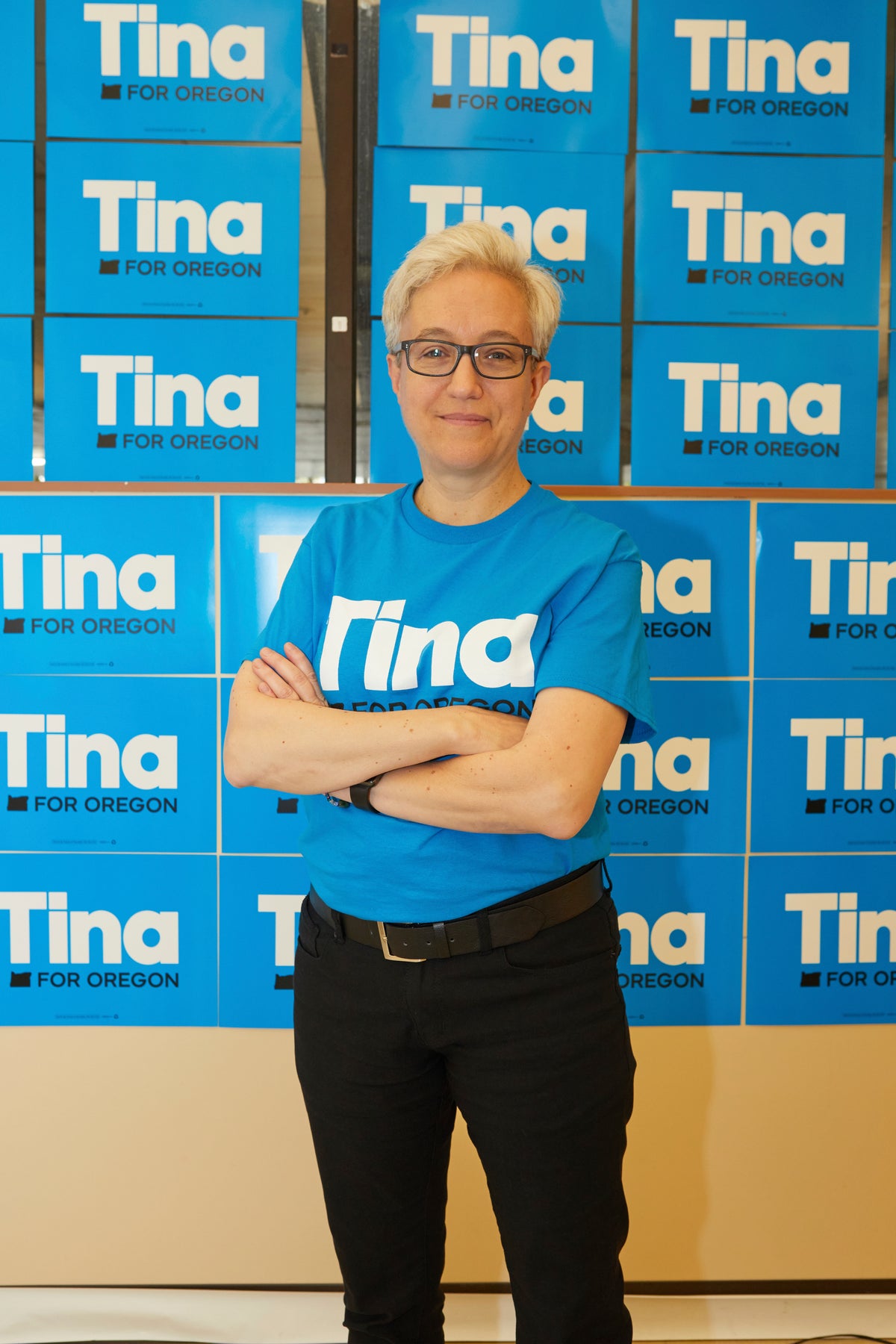
Oregon’s gubernatorial election hung on a knife’s edge Wednesday, with the race too early to call in a state that has voted in Democratic governors since 1986.
Democrat Tina Kotek was slightly ahead of Republican Christine Drazan, according to partial results from the secretary of state’s office.
Because Oregon’s vote-by-mail system now allows ballots to be counted if they were postmarked by 8 p.m. on Election Day, an untold number of ballots are in the hands of the postal service. Nov. 15 is the last day for election officials to receive valid postmarked ballots by mail. In past general elections, votes needed to be received by election day.
Drazan’s campaign said at midday Wednesday: “We continue to monitor returns with the expectation that this race will tighten.”
Kotek’s spokeswoman, Katie Wertheimer, said the campaign had no official statement and was also watching returns. If elected, Kotek would be the first out lesbian elected governor in the United States, along with Maura Healey, who on Tuesday was elected governor of Massachusetts,
On Tuesday night, Kotek told supporters in Portland that “we might be waiting a little while before things are official.”
“Every vote counts and every vote has to be counted,” Kotek said.
Unaffiliated candidate Betsy Johnson, a former Democratic lawmaker, conceded Tuesday night, telling supporters her “winning record is now broken.” Her voice broke as she thanked them.
The three women, all former legislators, were the top candidates in the race to become the next governor of the state.
The presence of Johnson, who quit the Democratic Party in 2021 to run as an unaffiliated candidate, presented a wild card in the race. Johnson quickly amassed a sizeable campaign war chess, including hefty donations from Nike co-founder Phil Knight, but the early returns had her with less than 10% of the vote.
Kotek was the longest serving Oregon House speaker. Drazan is a former leader of the Republican minority in the House. Several opinion polls had showed the two statistically tied, which prompted President Joe Biden to come to Portland recently to boost Kotek’s chances.
Several voters said on Tuesday they were concerned about abortion rights, homelessness and the economy.
Portland resident Emily Lamunyan said that if reproductive rights were scaled back following an election she didn’t vote in, “I would never forgive myself.”
Democrats were worried that Johnson could attract enough voters on the left to boost Drazan’s odds. If elected, Drazan would be governing alongside a Legislature that has been dominated by Democrats.
Kotek would be working with legislators with whom she had forged relationships, but there will be some new faces in the Legislature after several lawmakers didn’t run again, including the longest-serving Senate president, Sen. Peter Courtney, who retired.
Democrats also warned that a Drazan victory could threaten abortion rights, environmental protections and democratically run elections in the state.
Drazan blames Democrats for homelessness, crime and inflation, saying picking Kotek would be like reelecting Gov. Kate Brown, who was barred by term limits from running again.
Johnson had aimed to be the first unaffiliated woman to be elected governor of a state. The last and only time an unaffiliated candidate won a gubernatorial race in Oregon was in 1930, when Julius Meier was elected to one term.







